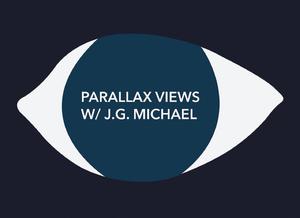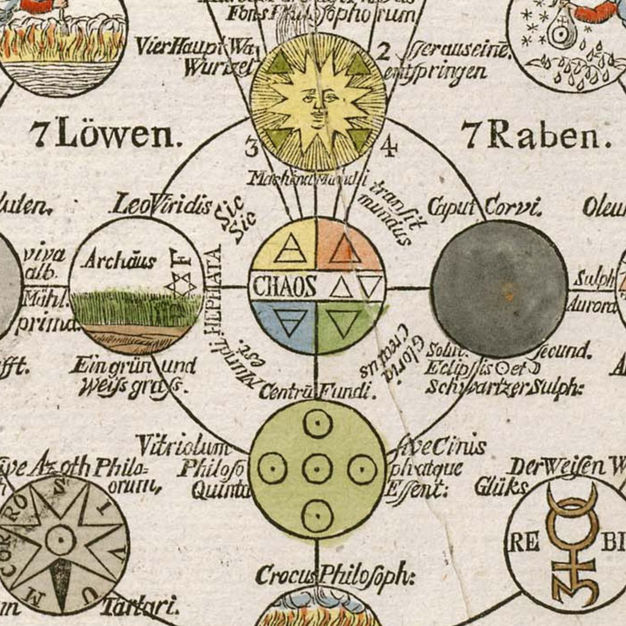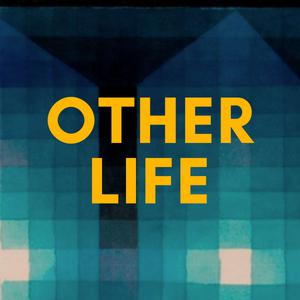
Parallax Views w/ J.G. Michael
J.G.
- 1 hour 38 minutesThe Turbulent World - April 2024 Update on Iran & Israel, Gaza Protests, Extreme Rhetoric in Israel, Israel's Information War, Benjamin Netanyahu, and More w/ James M. Dorsey
On this edition of Parallax Views, Middle East scholar Prof. James M. Dorsey of The Turbulent World w/ James M. Dorsey Substack blog returns for another update on the situation of Israel/Palestine and the broader Middle East. This hour and a half conversation delves into many different areas including:
- The Gaza War
- Violence in the West Bank
- The past month of tensions between Iran and Israel starting with Israel's attack on an Iranian consulate compound and Iran's strike in response; the Biden administration's response to the Iran attack; the 7-year-old Bedouin girl injured in the Iranian strike
- The U.S. foreign policy establishment and Iran hawks
- The Gaza protests at Columbia University and other campuses around the U.S.
- Israel's Prime Minister Benjamin Netanyahu, his policy on Palestine, and related matters related to Bibi
- Will the situation of Gazans really fundamentally change in a post-Netanyahu Israel?
- Khan Younis mass graves allegations
- UNRWA situation and Israel's information war (which Dorsey argues Israel is losing)
- The different flavors of both Zionism and anti-Zionism; militant anti-Zionism vs. conciliatory anti-Zionism
- The genocide discourse, legal definition of genocide, and war crimes/human rights violations
- Qatar, Saudi Arabia, Turkey, Hamas, and the Arab street
- Nancy Pelosi's conspiracy theory about Gaza protests being tinged by the influence of foreign powers
- Personal anecdote from James about an experience he had involving Zbigniew Brzezinski and Iran
- Extreme rhetoric within Israel, especially amongst elements in Israel's army and amongst religious leaders; Rabbi Mali's comments suggesting the Israel kill Palestinian women to prevent the births of future Palestinian boys
- And much, much more
26 April 2024, 12:18 pm - 1 hour 16 minutesDear Palestine: A Social History of the 1948 War w/ Prof. Shay Hazkani
On this edition of Parallax Views, the University of Maryland's Prof. Shay Hazkani, a former Israeli journalist turned historian, joins the show to discuss the major themes of his book Dear Palestine: A Social History of the 1948 War and documentary The Soldier's Opinion in light of the Gaza War, settler violence in the West Bank, and the October 7th Hamas attack. Prof. Hazkani provides a fresh, illuminating perspective on the 1948 Arab-Israeli War that contributes a great deal to discussion of Israel/Palestine. Specifically, he takes the approach of looking at how non-elites, especially soldiers, viewed/perceived the war compared to elites on both the Israeli and Arab sides of the conflict. We'll delve deep into this as well as Prof. Hazkani's battles with the Israeli Supreme Court over the fight to declassify documents in Israel's archives; how Prof. Hazkani's work overlaps with that of the Israeli New Historians like Benny Morris, Avi Shlaim, and Ilan Pappe (as well as how it differs from those works); propaganda and the mythologies of war (and how said propaganda and myths are generated); some of the myths that Prof. Hazkoni specifically busts in the book; the damage books like Joan Peters' From Time Immemorial have caused to properly understanding Israel/Palestine; the Arab Liberation Army; how then-recent American Jewish immigrants perceived events unfolding at the time compared to Jews who had immigrated prior; and much, much more. And yes, we will discuss all of this within the context of the current Gaza War and violence in the West Bank. Prof. Hazkoni will delve into his fears about what is transpiring currently, especially with regards to messianic right-wing elements in Israeli society like the Religious Zionists, as well as how the parallels between 1948 and today. All that and more on this must-listen edition of Parallax Views!
24 April 2024, 4:05 am - 57 minutes 41 secondsColumbia U Protests + the Kent State Massacre, Project Censored's State of the Free Press 2024, Forever Chemicals, & Remembering Daniel Ellsberg w/ Mickey Huff
On this edition of Parallax Views, Project Censored's Mickey Huff joins us to discuss Project Censored's State of the Free Press 2024, the media watchdog group's annual round-up of the most censored news stories in the United States. However, rather than just a straight rundown of this year's annual Project Censored offering, Mickey and I use this conversation to take the opportunity to discuss the recent controversy over the Columbia University pro-Palestinian Gaza protests, John Fetterman's comparing those protests to the Charlottesville "Unit the Right" rally, and Senator Tom Cotton calling for vigilante violence against protesters. With calls for the National Guard to be brought to Columbia University to put an end to the protests, Mickey and I reflect on the Kent State Massacre of 1970, the anniversary of which will be on May 4th.
Additionally we'll discuss:
- Mainstream media coverage of the Gaza war as well as the leaked New York Times memo telling journalists to avoid words and phrases like "genocide", "ethnic cleansing", and "occupied territories" when covering Israel/Palestine-related issues.
- The importance of the right to protest to a functioning democracy
- The lack of trust in corporate media and the worrying state of journalism today
- Remembering Pentagon Papers whistleblower Daniel Ellsberg
- Project Censored's coverage of PFAS or toxic "forever chemicals" and why this environmental story needs more coverage
- And much, much more!
23 April 2024, 1:46 am - 1 hour 9 minutesApplying the Lessons of the French Evisceration of Algeria to the Gaza War w/ Sean Tomilson
On this edition of Parallax Views, Sean Tomilson, a PhD candidate in Middle Eastern and North African Studies at the University of Arizona, a graduate of West Point, and a U.S. Army veteran, joins the show to discuss his March 2024 Responsible Statecraft piece entitled "What the French evisceration of Algeria has to do with Gaza today". We'll discuss the "Philippeville massacre" of 1955 and the reaction to it during the Algerian War of Independence and its parallels with the October 7th Hamas attack and Israel's response to it. Sean argues that the military logic of "total victory" may not be achievable for Israel in Gaza and that there's many lessons to be gleaned from the French experience in Algeria in this regard. We'll also look at the systemic roots of both conflicts and the errors made strategically by France in regards to Algeria. What can this tell us about the Israel-Palestine conflict and how Israel has waged its military operations in Gaza since October 7th? Also, where does the logic of total victory lead and how can the brutal civilian causalities inflicted actually inflame future conflict? All that and more on this edition of Parllax Views.
17 April 2024, 1:06 am - 1 hour 26 minutesExamining Biden's Policies on Economics, Gaza, and the Border Heading Into Election Season w/ Karen Dolan/How Autocrats Seek Power w/ Richard Abel
On this edition of Parallax Views, in the first segment Karen Dolan, a Fellow at the Institute for Policy Studies who heads of said institute's Criminalization of Race and Poverty project, stops by to discuss Biden's policies in relation to the economy, the border/immigration, and Gaza/Israel-Palestine. In the course of this segment we'll delve into where Biden appears to be leaning into the progressive base's goals and where he is wildly out-of-step with the progressive base. During the conversation Karen and I go through her two most recent articles: "Parsing Biden’s 2024 State of the Union Address" and "Biden’s populist budget marks the overdue end of trickle-down economics". Some of the key issues we cover our green energy policy, corporate price-gouging, inflation, child tax credits, the Pentagon budget, taxation of the wealthy, and more.
In the second segment of the show, UCLA law professor Richard Abel, known for his work on apartheid South Africa (his work was even promoted by Nelson Mandela!), joins the show to discuss his trilogy of books on autocrats and autocracy. The third entry in this series Prof. Abel has penned is entitled How Autocrats Seek Power: Resisting Trump and Trumpism and deals heavily with the events of and leading up to the January 6th insurrection. We'll discuss a number of issues, have a respectful back-and-forth about the U.S.'s own relations with autocratic states that the U.S. consider allies, get Richard's thoughts on people who are conscientiously abstaining from voting for Joe Biden over Gaza, chat about Trump and conspiracy theories, and much, much more. Prof. Abel will also talk about his work criticizing the Bush and Obama administration during the War on Terror and why he considers Trump more dangerous than previous presidential administrations.
9 April 2024, 7:44 pm - 1 hour 50 minutesInside the World of Deathmatch Wrestling w/ Mike Krueger
On this edition of Parallax Views, we delve into the controversial world of deathmatch wrestling with deathmatch wrestler Mike Krueger. For those unfamiliar with deathmatch wrestling, it is by far the most extreme variant of professional wrestling imaginable. When watching a deathmatch promotion like Game Changer Wrestling (GCW), Combat Zone Wrestling (CZW), Xtreme Pro Wrestling (XPW), Underground Empire Wrestling (UEW), or any number of others similar promotions you can expect to see things that you'd never see in a mainstream pro wrestling promotion like WWE. This includes wrestler diving off balconies into glass, wrestler being thrown into flaming tables, and competitors using objects like light tubes and barbed wire bats as weapons. It is, in other words, the "outlaw" form of pro wrestling that is often heavily criticized for it's blood-n-guts gruesomeness.
And yet, deathmatch wrestling has cultivated a rather diverse audience. On one hand there's the "anti-woke" fans of Rob Black's notorious XPW. On the other there's Game Changer Wrestling, which has become popular especially with some in the LGBTQ+ community for its inclusiveness.
Additionally, despite its violence, deathmatch wrestling also has some famous fans. The Muslim gonzo punk novelist Michael Muhammad Knight, for example, is on record as being a fan of legendary deathmatch wrestler Necro Butcher. And then there's the RackaRacka Brothers aka Danny Philippou and Michael Philippou, known for directing last year's A24-distributed sleeper horror hit Talk to Me, who are not only making a documentary on deathmatch wrestling, but have actually participated in deathmatches.
And they aren't the only celebrities who have been involved in deathmatch wrestling. Actor David Arquette, known for the Scream movies (as well as his infamous stint in mainstream wrestling as the short-lived World Heavyweight champion of WCW), did a deathmatch with one of the genre's biggest names: Nick Gage. Additionally, rock stars like Glenn Danzig, Korn's Jonathan Davis, Slayer's Kerry King, and former Danzig bassist Josh Lazie as well as rap duo the Insane Clown Posse made appearances or were involved with XPW in the late 90s/early 2000s.
The deathmatch performance art shows of New York's Casanova Valentine have gained the attention of punk rock and urban hipster youths at bars. And VICE has tackled the topic in multiple documentaries, most notably in in season 3 of the popular TV show Dark Side of the Ring's "The Ultra-Violence of Nick Gage" episode.
Violent as it may be, deathmatch wrestling is, against seemingly all odds, arguably breaking through to the mainstream. The widely listened to Joe Rogan Experience podcast devoting an entire segment to the subject with the aforementioned Phillippou Bros. should attest to that fact.
What is the appeal of deathmatch wrestling though? Is there more to it than the elements of ultra-violence? And what is it like being a deathmatch wrestler?
Mike Krueger will help answers those questions and more. We'll discuss a number of topics including:
- The punk rock nature of deathmatch wrestling
- The connection between deathmatch wrestlers and the smaller, more intimate audiences they perform for
- The Mount Rushmore of death match wrestling
- The trendiness of deathmatch wrestling in the past few years
- What drives deathmatch wrestlers?
- The dangerous nature of deathmatch wrestling and the fact that the damage the wrestlers' bodies take in deathmatches can't be fact even if the results are predetermined
- Trauma, psychological issues, and deathmatch wrestlers
- The psychology of deathmatch wrestling
- Old school deathmatch wrestling from Japan: Frontier Martial Arts Wrestling (FMW) and their infamous barbed wire exploding death match between Terry Funk and Atsushi Onita
- Storytelling in deathmatch wrestling
- The wear and tear Mike's body has endured from deathmatch wrestling
- The cut-throat nature of the independent wrestling scene; backstabbing in the scene; promoters that don't pay the talent
- The story of Mike getting hit multiple times with a weed whacker in a match
- The role of muscle memory in pro wrestling
- How do deathmatch wrestlers protect themselves when being hit by glass or lighttubes?
- Has deathmatch wrestling gotten too violent since the time it began? How has the deathmatch wrestling scene changed since Mike got involved in it?
- Mike Krueger's background in amateur wrestling and answering the question of how many deathmatch wrestlers are properly trained
- Why Mike quit pro wrestling and why he more recently made a comeback
- Deathmatch wrestling and how its violence combined with the type of wrestlers it attracts makes people question the "is this fake?" question more so than other forms of wrestling? How wrestlers like the late New Jack made people believe that they may be watching a "shoot" (a real fight)
- The craziest thing Mike has ever seen in a deathmatch
- The falls from high heights that deathmatch wrestlers take onto tables, concrete, etc.
- The So Cal deathmatch wrestling scenes and the late deathmatch wrestler Supreme
- What is "heat" in pro wrestling and how to get it in a match; how Mike has to get heat in a match without talking
- What's it like working matches with barbed wire; Mike talks about preparing for his first ever no-ropes barbed wire match (the ropes are barbed wire); taking hits from glass vs. barbed wire; the worst part of barbed wire matches
- The adrenaline rush the wrestlers get during a match and how the pain often sets in after the match is over rather than during
- How time flows differently for a wrestler during a match
- Feeding off the energy fans and the audiences during a match
- And much, much more!
5 April 2024, 11:11 am - 51 minutes 7 secondsIs the U.S.-Israel Special Relationship a Strategic Liability? w/ Jon Hoffman
On this edition of Parallax Views, Jon Hoffman, policy analyst in defense and foreign policy at the Cato Institute, joins the show to discuss his Foreign Policy article "For America, Israel Is a Liability, Not an Asset". Hot off his appearance on MSNBC discussing said article, Hoffman joined me to go further into the main points that he raises throughout the piece. Specfically, Hoffman argues that is time for the U.S. to reconsider its special relationship with Israel. He argues that it has become detrimental to both the U.S. and Israel. This is not, to say, however that Hoffman thinks we should have no relationship with Israel. Instead he argues, as other such as Matthe Yglesias have also done, that it is time for a normalization of the U.S.-Israel relationship. The current nature of the special relationship, he argues, does not serve American interests and does harm to U.S. foreign policy and stability in the Middle East. We delve into such issues as the Gaza War, Israel's lack of an endgame strategy beyond "eliminating Hamas" in regards to Gaza, fury against the U.S. and Israel by the Arab streets in the region, how unconditional support for countries like Israel and Saudi Arabia can undermine belief in the U.S.-led "international rules-based order", the nature of the U.S.-Saudi relationship and oil, the argument that Israel is the U.S.'s necessary "eyes and ears" in the Middle East, the American-Israel Public Affairs Committee (AIPAC) and pro-Israel lobbying efforts, how the special relationship may be empowering right-wing figures like Israel's Prime Minister Benjamin Netanyahu TO THE DETERIMENT of Israel itself (this is likely a key point for people who would dismiss Hoffman's piece as an anti-Israel screed; it isn't regardless of what one's views of Israel and the Gaza War are), what normalization of relations between the U.S. and Israel would look like, and much, much more.
3 April 2024, 6:14 pm - 1 hour 21 minutes"White Rural Rage" Book Receives More Criticism from a Scholar It Cited w/ Kristin Lunz Trujillo/Culture Warriors Push Propaganda About Haiti Crisis w/ Patrick MacFarlane
On this edition of Parallax Views, Kristin Lunz Trujillo, Assistant Professor of Political Science at the University of South Carolina, joins the show to discuss her Newsweek op-ed "'White Rural Rage' Cites My Research. It Gets Everything About Rural America Wrong". Like previous guest Prof. Nicholas F. Jacobs, Trujillo has a critique of Paul Waldman and Tom Schaller's new book White Rural Rage: The Threat to American Democracy. Given that the book has been covered in various media outlets as of late, Trujillo's critique seems relevant, especially as many Democrats and Democratic Party strategists may take the book to heart despite the problems with the way it cites research. Trujillo and I get into the problems with both the blanket demonization of rural America as well as the romanticization of it. We'll also delve into the problems with the books depiction of rural American politics, a subject that Trujillo specializes in researching. We'll look at the rural America in relation to Christian nationalism and QAnon conspriacy theories as well as delving into how media creates a certain image of rural America that flattens our understanding of rural Americans and their voting habits. All that and more on this edition of the show!
In the second, short-but-sweet bonus segment of the show The Libertarian Institute's Patrick MacFarlane joins the program to discuss the right-wing culture warriors pushing stories about Haitian cannibal gangs in light of the crisis in Haiti and how these stories may not be true and actually serve as war propaganda. In particular we hone in on the claims around Jimmy "Barbecue" Chérizier as detailed in his article "Culture Warriors Spread Disinfo on 'Haitian Cannibals'".
1 April 2024, 5:07 pm - 53 minutes 9 secondsProminent Jewish Americans Sign Letter Opposing AIPAC w/ Alan Minsky
On this edition of Parallax Views, last week a number of prominent Jewish Americans came together to sign an open letter voicing opposition to AIPAC (American Israel Public Affairs Committee) and its influence on both major American political parties.
A statement in the leader reads, "Given that Israel is so isolated internationally that it could not continue its inhumane treatment of the Palestinians without U.S. political and military support, AIPAC is an essential link in the chain that holds in place the unbearable tragedy of Israel/Palestine. In coming U.S. elections, we need to break that chain in order to help free the people of Israel/Palestine to pursue peaceful coexistence."
This open letter comes at a crucial time given Israel's war in Gaza and mounting concerns over the humanitarian crisis faced by Palestinians at this very moment. Prominent signees include actors Elliot Gould and Wallace Shawn, journalist Martin A. Lee, playwright Tony Kushner, and previous Parallax Views guests such as Ariel Gold, Dave Zirin, Mitchell Plitnick, and Samuel Moyn. Given AIPAC activities against progessive candidates in the Democratic Party, this letter should catch the eye of progressive voters and activists.
Alan Minsky, executive director of Progressive Democrats of America and one of the main forces behind the letter, joins the show to discuss the letter, AIPAC, and related issues.
Full text of the open letter below:
A Statement from Jewish Americans Opposing AIPAC’s Intervention in Democratic Party Politics
We are Jewish Americans who have varying perspectives. We’ve agreed to come together to highlight and oppose the unprecedented and damaging role of AIPAC (American Israel Public Affairs Committee) and allied groups in U.S. elections, especially within Democratic Party primaries. We recognize the purpose of AIPAC's interventions in electoral politics is to defeat any critics of Israeli Government policy and to support candidates who vow unwavering loyalty to Israel, thereby ensuring the United States' continuing support for all that Israel does, regardless of its violence and illegality.
Given that Israel is so isolated internationally that it could not continue its inhumane treatment of the Palestinians without U.S. political and military support, AIPAC is an essential link in the chain that holds in place the unbearable tragedy of Israel/Palestine. In the coming U.S. elections, we need to break that chain in order to help free the people of Israel/Palestine to pursue peaceful coexistence.
In the same 2021-22 election cycle in which AIPAC endorsed Republican extremists and dozens of Congress members who’d voted against certifying Biden’s victory over Trump, the AIPAC network raised millions from Trump donors and spent the money inside Democratic primaries against progressives, mostly candidates of color. AIPAC is now vowing to spend even more millions in the 2024 Democratic primaries, targeting specific Democrats in Congress – initially all legislators of color – who’ve advocated for a Gaza ceasefire, a position supported by the vast majority of Democratic voters. AIPAC’s election spending increasingly works to defeat candidates who criticize the racist policies of Israel.
In contrast to AIPAC, we are American Jews who believe that U.S. support for foreign governments should only be extended to those that respect the full human and civil rights, and right to self-determination, of all people. We oppose all forms of racism and bigotry, including antisemitism – and we support the historic alliance in our country of Jewish Americans with African Americans and other people of color in the cause of civil rights and equal justice.
Therefore, we strongly oppose AIPAC's attempts to dominate Democratic primary elections. We call on Democratic candidates to not accept AIPAC network funding, and demand that the Democratic leadership not allow Republican funders to use that network to deform Democratic primary elections. We will support candidates who are opposed by AIPAC, and who are advocates for peace and a new, just U.S. policy toward Israel/Palestine.29 March 2024, 12:42 am - 2 hours 4 minutesJonathan Glazer's Oscar Speech, Its Parallels to Vanessa Redgrave's 1978 Oscar Speech, & the Meaning of THE ZONE OF INTEREST w/ Corey Atad
On this edition of Parallax Views, freelance writer Corey Atad, who has written in such publications as Esquire, Slate, Hazlitt, and The Baffler, joins the show to discuss his piece in Welcome to Hellworld on Jonathan Glazer's Oscar speech and the reaction to said speech. Glazer decided to bring up the Gaza War when accepting the award for his Holocaust drama The Zone of Interest. He was accused of saying he was "refuting his Jewishness and the memory of the Holocaust" even though the clip was taken out of context. What he said was actually a commentary on the hijacking of Jewish identity and Holocaust memory for political purposes (which is what he sought to refute), a warning/call to resistance against dehumanization. As Glazer explained, he felt that Zone of Interest was not just a film about the past, but also the present. In other words: we need to be aware of where dehumanization has led in the past and where it could lead in the present. Glazer also made reference to Israel's Occupation of Palestinian territories during this speech.
This has all sparked backlash and the aforementioned distortion of Glazer's words. A letter signed by at least a thousand people in Hollywood (some, like Jennifer Jason Leigh, recognizable, but many not) denouncing Glazer. Other, such as playwright Tony Kushner and the Auschwitz Memorial director Piotr Cywiński, have come to Glazer's defense.
Corey joins the show to give his take on the speech as well as to offer his commentary on The Zone of Interest and relaying the tale of actress Vanessa Redgrave's 1978 Oscar speech which cause a similar controversy when she called out the extremist Jewish Defense League (referring to them as "Zionist hoodlums). We'll also delve into The Zone of Interest from the perspective of Hannah Arendt's "banality of evil" concept, Corey's criticism of The Zone of Interest, and the themes of alienation at the heart of The Zone of Interest's story centered on Auschwitz commandant Rudolf Höss, his wife Hedwig, and their family against the backdrop of the Third Reich's exterminatory horrors. All that and more on this edition of Parallax Views.
24 March 2024, 8:59 am - 54 minutes 28 secondsGaza War Update w/ Prof. James M. Dorsey
On this edition of Parallax Views, Middle East scholar Prof. James Dorsey, the man behind The Turbulent World w/ James M. Dorsey blog and Substakc, returns for a Gaza War update. We discuss the clans in Gaza that may or may not end up collaborating with Israel against Hamas and their own unsavory nature, the bombing of Gaza and its infrastructure like hospitals, Israel's information war, Benjamin Netanyahu, Joe Biden's vision for the Middle East and the political obstacles he faces, the 1948 war and what came after it, the two-state vs. one-state solution, and much, much more.
NOTE: There's some audio crackle that couldn't be fixed in post on this episode. I hope you will find it listenable anyways.
23 March 2024, 1:22 pm - More Episodes? Get the App
Your feedback is valuable to us. Should you encounter any bugs, glitches, lack of functionality or other problems, please email us on [email protected] or join Moon.FM Telegram Group where you can talk directly to the dev team who are happy to answer any queries.
 Theory Talk
Theory Talk
 Other Life
Other Life
 Porkins Policy Radio – Porkins Policy Review
Porkins Policy Radio – Porkins Policy Review
 Hermitix
Hermitix